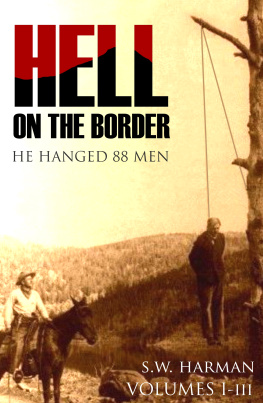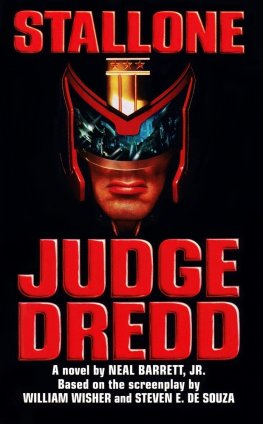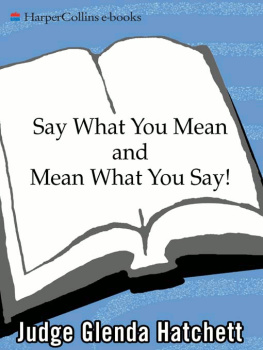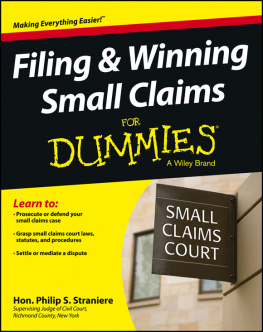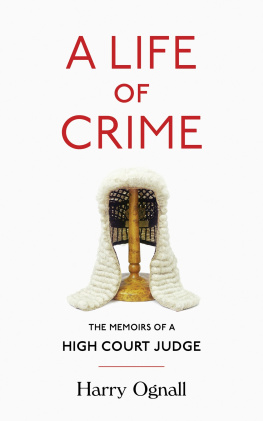
HELL ON THE BORDER
HE HANGED EIGHTY-EIGHT MEN
A HISTORY OF THE GREAT UNITED STATES CRIMINAL COURT AT FORT SMITH, ARKANSAS, AND OF CRIME AND CRIMINALS IN THE INDIAN TERRITORY, AND THE TRIAL AND PUNISHMENT THEREOF BEFORE HIS HONOR
JUDGE ISAAC C. PARKER
THE TERROR OF LAW-BREAKERS,
AND BY THE COURTS OF SAID TERRITORY, EMBRACING THE LEADING SENTENCES AND CHARGES TO GRAND AND PETIT JURIES DELIVERD BY THE WORLD FAMOUS JURN
HIS ACKNOWLEDGED MASTERPIECES,
BESIDES MUCH OTHER LEGAL LORE OF UNTOLD VALUE TO ATTORNEYS, AND OF INTEREST TO READERS IN EVERY WALK OF LIFEA BOOK FOR THE MILLIONS
BY S. W. HARMAN
COMPILED BY C. P. STERNS
FORT SMITH, ARK.
1898
COPYRIGHT 2015 BIG BYTE BOOKS
Discover more lost history from BIG BYTE BOOKS
PUBLISHERS NOTES
More than one hundred years after its first publication, there is still no more comprehensive and exciting published work on one of the most famous courts in history: the Parker Court. There is something here for everyone from True Crime aficionado to law professor. Here is frontier justice as it played out in the courts, as opposed to how it plays out in Hollywood. The cases are detailed and riveting and even Parkers instructions to a grand jury makes fine reading for anyone interested in courtroom proceedings.
Justice in Indian Territory at the end of the nineteenth century was sometimes as brutal as the crimes it was punishing. However, in Judge Isaac Charles Parker, one finds an erudite, articulate, even eloquent and impassioned advocate for the rule of law. Though the appellation of the hanging judge was hung on him you will not find a rough, mean-spirited, fire-breathing magistrate here. He will surprise and often amuse you.
Judy Galonska, author of the introduction for the 2001 print version of this classic, cautions that the author, Samuel Harman, and his assistants, J. Warren Reed and C.P. Stearns, were not detached observers of Judge Parkers court. They knew him and loved him. But they drew extensively on court records, newspaper accounts, and interviews when writing this exhaustive compilation of Parkers two decades on the bench in Indian Territory.
During Parkers service, non-Native Americans were flooding into the territory. Crime was really rampant and much of it was shocking. Many outlaws believed they would not face justice in the wild and open spaces. Most Americans and certainly most citizens of the territory approved of Parkers severe sentencing. Many felt that the relative stability at the end of Parkers service was largely a result of that severity, ignoring other factors that settlement of the territory brought with it.
There are some inaccuracies in the book but they appear minor. One more egregious one is the section on Belle Star, which is enormously entertaining but pretty much cribbed from the dime novel, The Bandit Queen .
Youll find more than just murder and robbery in these pages, although many of the cases involved those crimes. In the end, there is a mountain of entertaining reading.
AUTHORS PREFACE.
In preparing and putting before the reading public a History of the Federal Court of Fort Smith, Arkansas, the most famous court in the worlds annals, the greatest distinctive criminal court ever known, than which none ever existed with jurisdiction over so great an expanse of territory, and the only trial court in the civilized world from whose decisions there wasfor many yearsno right of appeal, I am governed by mingled emotions of sympathy and triumph: Sympathy for the unfortunate thousands in our land, who, under our present system of civilization, are brought into the world criminals at birth, with the mark of Cain already set upon their brows, practically irresponsible for their acts because of a lack of proper opportunities for cultivating the virtues, lacking discipline in childhood and allowed to grow up like a brambleuntended and untutored; their vices encouraged and their natural goodthat lying dormantwas smothered for lack of nutriment: Of triumph at the achievements of our courts, and of this especial court, whose duty it was to run down and ferret out those of the criminal classes in the Indian Territory who were too much hardened, too old in sin to be susceptible of reforming influence, and whose inevitable and certain punishment for crimes committed may serve as a warning to others who, not having yet entered the whirling vortex leading to a criminal career, may be induced to direct their footsteps in another direction.
In 1888 I moved to Bentonville, Arkansas, and continued to reside there and at Rogers for a period of nearly ten years. During that time I was frequently summoned to serve on the
Federal Jury at Fort Smith and this, with other private business affairs, took me to that city so frequently that I became conversant with the peculiarities of the court and its environments as well as becoming intimately acquainted with Judge I. C. Parker and all the leading attorneys who practiced at his world famous bar. as well as with many of the deputy marshals and other court attaches.
Very early in my experience with the court I decided that a book which should give a carefully compiled list of the leading criminals who were there convicted would be of value to moralists, and as time grew apace I concluded that such a book to be valuable should contain as well descriptions of the more noted trials, stories of the crimes committed and sketches of the criminals themselves, as well as a biography of Judge Parker, also of the executioner and other officers of the court, and many bits of information and data of curious facts which might be considered worthy of being handed down in history.
This information, on account of my intimate acquaintance with Judge Parker and the leading attorneys, I was enabled to obtain, and being of a naturally observing turn of mind I picked up many things that, placed together, makes a whole that is of undeniable interest.
Looking about for a title for the book, I remembered standing one evening at the entrance to the United States Jail, when an old Arkansas gentleman passed and, looking in, for a moment, paused and listened to the ribald songs and coarse, brutal jests that fell from the lips of the prisoners; he heard the demoniacal yells, saw the prisoners, Indians, whites and negroes, all mingled together in a heterogeneous mass, and turning to me, with a look that spoke the anguish he felt, remarked:
If this is not hell, I do not know where hell is.
Yes, replied a bystander. And it is right on the border.
I was deeply impressed, and I shudder now as I think of the emotions which filled my soul as I listened to their words, and by a species of analytical digression cogitated upon the present, past and possible future of the unfortunate beings within that veritable hell.
Then there came to me like an inspiration: Teach the youth; instill correct principles into their hearts, crowding out the seeds of crime and therell be none to fill a hell like this.
At a point in the Indian Territory where the trail leading from No Mans Land crosses the north fork of the Canadian River stands a sign bearing the legend:
FORT SMITH
FIVE HUNDRED MILES
In the fall of 1882, after the Federal Court under Judge Parker had gained a reputation which mad: it a terror to the red-handed Territory outlaws, a posse of deputy marshals were in the vicinity in search of a well-known bandit gang, composed of six of the most desperate characters in the Indian country. The officers were close upon them; the outlaws hastening to reach No Mans Land which offered better opportunities for defense than the broad expanse of prairie to the east. Finally, with the marshals in full sight, not more than two miles away, the bandits reached the borders of the stream when, as if by common impulse, they stopped, turned their horses and raising their Winchesters each fired several volleys at the innocent guide board as if to show their contempt for Fort Smith and the Federal Court, and then wheeling about rode away to safety. A few days later one of them, having something of the wag in his make up, returned, and glancing up at the words, whose typography was well-nigh destroyed by the bullets, was struck with the humor of the situation, and standing high in his saddle he cut with his dirk in rude characters underneath, this legend: To Hell.
Next page
